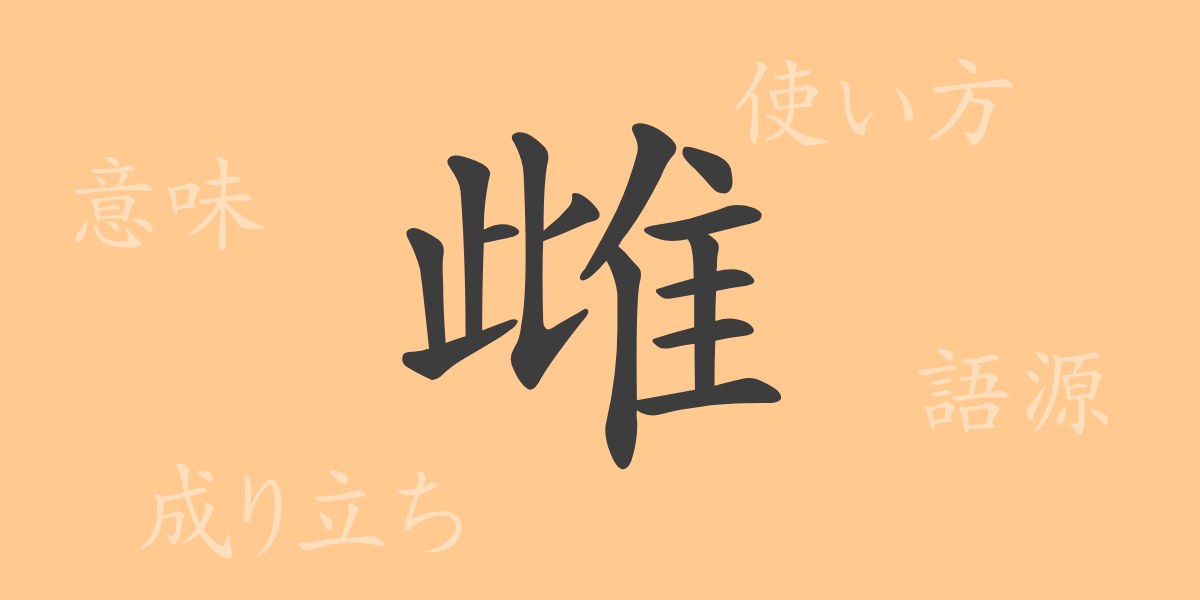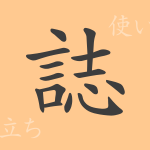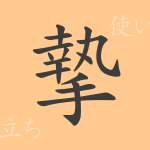Japanese includes numerous kanji characters passed down from ancient times. Among these, there are characters that represent the sex of living organisms, and “雌(めす)” is one of them. This article delves deeply into the kanji “雌(めす),” exploring its origins, meanings, usage, readings, stroke count, radical, and related idioms and expressions. By gaining a new understanding and appreciation for this commonly seen kanji, we can touch upon the culture and ideas embedded in the language.
Origins of 雌(めす) (Etymology)
The kanji “雌(めす)” originates from ancient China. It began as a pictograph representing a bird’s nest with eggs, symbolizing the female reproductive role. Over time, this character evolved to specifically denote female organisms, resulting in the creation of the kanji “雌(めす).” Through the ages, its form has changed, eventually settling into the shape we recognize today.
Meaning and Usage of 雌(めす)
The kanji “雌(めす)” refers to female animals and plants. Generally, it is used in contrast to “雄(おす)” (male) to distinguish the sex of organisms. Additionally, it can metaphorically describe characteristics that are soft or passive. In usage, it appears in words like “雌雄(しゆう)” (male and female), “雌花(めばな)” (female flower), and “雌犬(めすいぬ)” (female dog).
Readings, Stroke Count, and Radical of 雌(めす)
The kanji “雌(めす)” has the following characteristics:
- Readings: The on’yomi (音読み) reading is “シ(し),” and the kun’yomi (訓読み) reading is “めす.”
- Stroke count: 12 strokes
- Radical: 隹(ふるとり), which is often associated with birds.
Idioms, Phrases, and Proverbs Using 雌(めす)
Here are some idioms, phrases, and proverbs that include the kanji “雌(めす)”:
- 雌雄(しゆう)を決する – To determine the winner between two opposing parties.
- 雌雄同体(しゆうどうたい) – An individual that possesses both male and female characteristics.
- 雌伏雄飛(しふくゆうひ) – To bide one’s time and then achieve great success when the opportunity arises.
These idioms and phrases are used in everyday life and business contexts, helping to understand the deep meanings and cultural backgrounds behind the words.
Conclusion on 雌(めす)
The kanji “雌(めす)” symbolizes the richness of the Japanese language through its unique origin and diverse usage. By understanding “雌(めす)” not only as a basic character indicating sex but also as a cultural expression and metaphor, we can use the language more richly. We hope this exploration helps you appreciate the depth of the Japanese language and sparks further interest in the words you encounter daily.

























